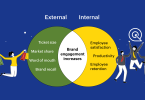Englewood, Florida, is a beautiful coastal town known for its sun-soaked days, vibrant neighborhoods, and frequent tropical weather. Because of its location, homes in Englewood often face roofing challenges, like sun exposure, storm damage, and high humidity that require skilled, reliable roofing professionals.
That’s why homeowners here turn to trusted local companies like Galloway Roofing in Englewood for roofing projects. But even when working with reputable contractors, it’s crucial to read the fine print. Your roofing contract is more than just a formality; it’s your legal protection.
To help you make confident, informed decisions, here are the biggest red flags to look for in roofing contracts—and why you should never sign on the dotted line without understanding what you’re agreeing to.
1. No Clear Scope of Work
A roofing contract should clearly state what work will be done—including materials, labor, and cleanup. If the scope is vague or missing entirely, you risk miscommunication, subpar materials, or surprise charges later.
What to look for: Specifics about materials (brand, type, color), number of layers to be removed, underlayment, flashing, ventilation, and any additional work (like gutters or skylights).
2. No Timeline or Completion Date
Time matters, especially in Englewood, where storms can roll in unexpectedly. A contract with no project timeline leaves you vulnerable to unnecessary delays. While weather and supply issues can happen, a professional should still provide an estimated start and completion date.
What to look for: A clear schedule, including estimated start and finish dates, and how weather delays will be handled.
3. Large Upfront Payment
If a contractor asks for a large percentage of the total cost upfront—especially more than 30%—it could be a sign of financial instability or a scam. While deposits are common to secure materials, you should never pay the full amount before any work begins.
What to look for: Reasonable deposit terms (10–30%) and a payment schedule tied to project milestones or completion.
4. Lack of License and Insurance Info
Florida law requires roofing contractors to be licensed and insured. If that information is missing from your contract—or if the contractor avoids the topic altogether—that’s a serious red flag. Without proper insurance, you could be held liable for injuries or property damage during the project.
What to look for: Proof of license and insurance included in the contract, including workers’ comp and liability coverage.
5. No Warranty Details
Your new roof is a big investment. A solid warranty, both for materials and work, is essential. If your contract doesn’t spell out warranty terms, you may have no recourse if problems arise later.
What to look for: Manufacturer’s material warranty and a contractor’s work warranty, including coverage duration and what is (and isn’t) included.
6. Verbal Agreements Only
If a contractor says, “Don’t worry, we’ll take care of that,” but doesn’t include it in writing, assume it won’t happen. Verbal promises mean little when it comes to legal disputes.
What to look for: Everything you’ve discussed—materials, costs, cleanup, timelines—should be in the contract. If it’s not written down, it’s not guaranteed.
Key Takeaways
- Insist on a detailed scope of work—vague contracts open the door to surprise costs and cut corners.
- Look for a realistic timeline to avoid project delays and scheduling issues.
- Be cautious of high upfront payments—it could be a sign of trouble.
- Ensure the contractor provides valid license and insurance information.
- Don’t settle for a contract without a clear warranty on materials and labor.
- If it’s not in writing, it’s not enforceable—always get everything documented.







